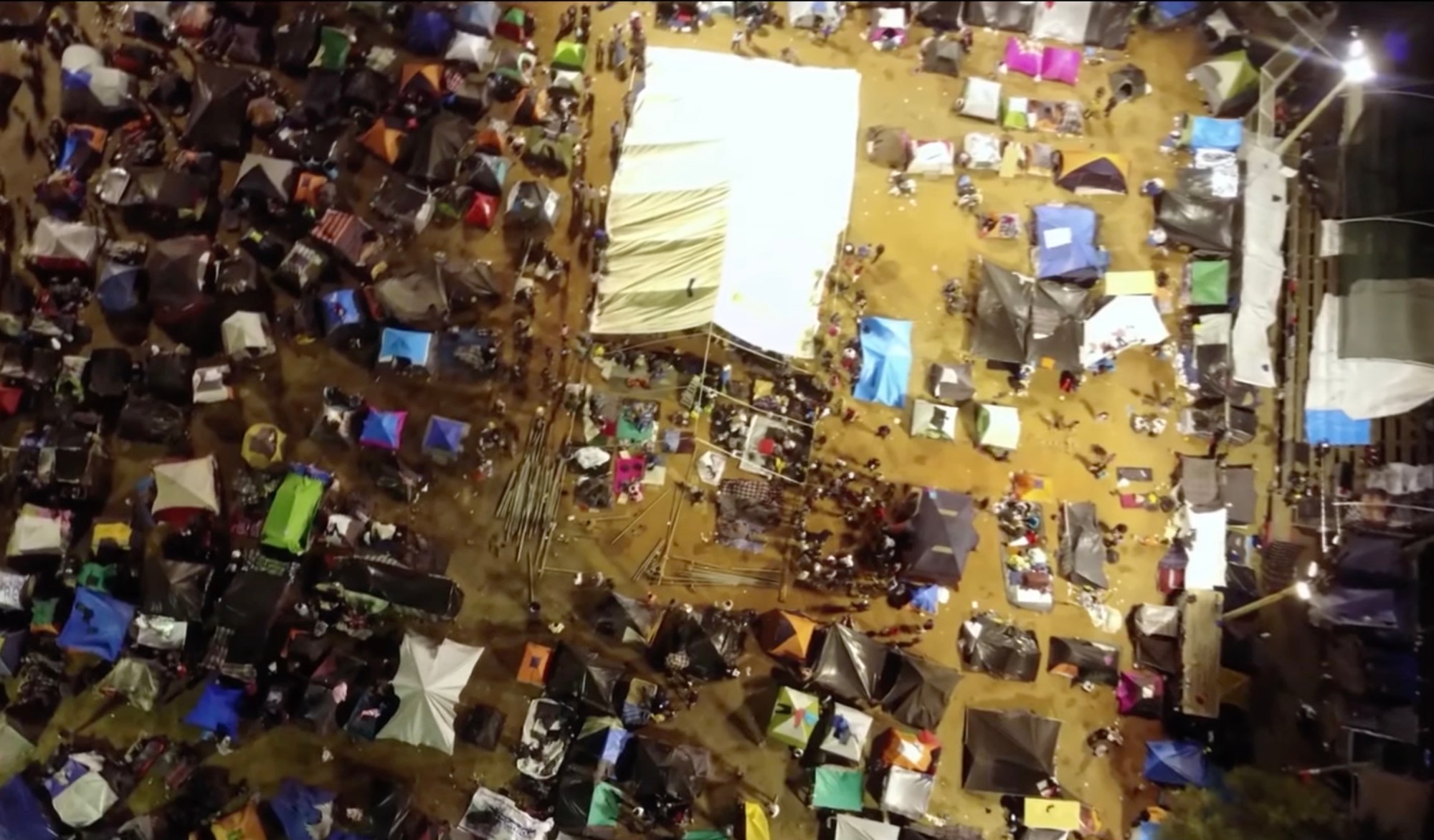
- Film
Docs: “Seeking Asylum” Puts Human Face on Migrant Struggles
We live in dichotomous times. Record numbers of people across the globe are fleeing war, political instability and persecution, mortal criminal threat, and more. Over the next several decades, the effects of climate change and gross economic inequality will likely only exacerbate those numbers. Meanwhile, even in a more interconnected world, nations increasingly seek to retrench, with many embracing regressive and/or nativist policies when it comes to dealing with émigrés.
The issue of immigration has been used, specifically and reliably, as an American political cudgel from time immemorial. But it feels a long way away from the 1980s, when a Republican president granted amnesty while signing the last big bipartisan immigration bill into law, and tens of thousands of concertgoers at a time would sing along to the upbeat chorus of U2’s “The Refugee,” implicitly cosigning its message of hopefulness and welcoming inclusion.
In the United States, a heterogeneous country largely built on immigration, the current cycle of its demonization is particularly tied to a willful mischaracterization in certain media ecosystems of the asylum process — as if all immigrants who can make it to a border checkpoint are somehow granted a free “fast-pass” to American citizenship, and bountiful social benefits. Neither of these things, of course, is true.
The nonfiction film Seeking Asylum, newly available for rental and purchase on Amazon, iTunes, Google Play, Vudu and other streaming platforms, aims to enlighten audiences about the asylum petition system. It does this by documenting the many challenges political asylum seekers endure, and giving a human face to their experience by following one woman’s journey as she searches for protection for her children while attempting to reunite with her Stateside husband.
Directed by Rae Ceretto, Seeking Asylum focuses on the Mensilas family, fleeing Honduras after an already imprisoned drug trafficker begins threatening to have their house burned down while they’re asleep at night.
Viewers meet Kensy and her three kids, Stephen, Valeria and Anthony, in 2019, after they’ve already spent two months sleeping on the floor of a detention center. Her husband Felix and middle son Kevin are already in Houston, but an executive order enacted under the Trump administration sends Kensy and her kids to Tijuana while they await their asylum hearing.
In 2020, that appeal is denied, but before Kensy can be deported she is temporarily sent to Los Angeles, and fitted with an ankle monitor. Two days later the border is shut down due to COVID, effectively grinding to a halt both repatriation as well as all asylum appeals.
In this limbo state, the Mensilas family is reunited. But Kensy and Felix cannot legally work. With their children out of school for over a year, and largely cut off from any other educational resources, Kevin is officially diagnosed with autism. Against the backdrop of COVID surges, Felix scouts for day laborer gigs outside of Home Depot, and Kensy gets an under-the-table cash job washing cars.
They scrape together $1,800 for an apartment but worry whether a landlord will abscond with their deposit before giving them the keys. When COVID finally hits the family despite their precautions, Felix frets about days of work lost during his hospital visit, darkly admitting, “I’d rather be a dead father than a useless father.”
The film features chats with maybe two dozen interviewees, a group that includes Jason De León, a UCLA professor of Anthropology and Chicano Studies; Neal Katyal, former Principal Deputy Solicitor General of the United States; Jennifer Nagda, policy director for Young Center for Immigrant Children’s Rights; and, eventually, Luis Gonzalez, a managing immigration attorney with the Jewish Family Service of San Diego, who ends up handling Kensy and Felix’s case. Crucially, though, most of these figures only pop up briefly, offering key details or edifying context, but not shifting the spotlight focus of the film from the Mensilas family.
Seeking Asylum is an expansion of Ceretto and producer Kelly Scott’s award-winning short documentary We Do Not Live Here. Its easygoing advocacy arrives via non-declamatory brushstrokes, but one thing is does make crystal clear is that the process by which refugees making a claim of asylum are handled is a matter of both settled international and domestic law — in regard to the latter, specifically the Refugee Act of 1980, signed by American President Jimmy Carter.
The movie economically illustrates the overworked shortcomings (“It’s like deciding death penalty cases in a traffic court setting,” one interviewee somberly notes), escalating rejection rates, and intentional dismantling of this system, pushing it purposefully into failure. Thus, extrapolating forward, it’s not difficult to view the degradation of the asylum process as a way to install very specific parameters by which to dictate who qualifies for a chance at the American Dream.
If it leans somewhat heavily into a hearty roster of statistical interstitials, Seeking Asylum has brevity on its side, never overplaying its hand with digressive narrative alleyways. As the film builds to an emotional climax, Kensy ponders their unresolved future, and says forthrightly, “This country is our home. Dreams exist here.”
In tandem with the film’s release, Seeking Asylum is launching an impact campaign dedicated to educating viewers about the immigration court system, and raising awareness for tangible asylum reform. For more information, visit www.seekingasylumfilm.com.

